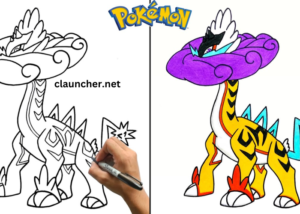
As we approach 2025, the world of business is evolving at an unprecedented pace. To remain competitive, companies must anticipate changes and stay ahead of the curve. Innovation is no longer a luxury—it’s a necessity. This article explores the emerging business innovation trends that will shape the business landscape in 2025. By understanding these trends, organizations can position themselves to thrive in the next wave of technological and economic advancements.
The Rise of Artificial Intelligence (AI) and Automation
AI in Business Operations
In 2025, Artificial Intelligence (AI) is expected to become an even more integral part of business operations. With the advent of machine learning, deep learning, and advanced natural language processing, AI is driving efficiency and transformation across industries. From automated customer service agents to predictive analytics, AI is enhancing decision-making processes and streamlining workflows.
Businesses will increasingly rely on AI to handle tasks that traditionally required human intervention, such as data entry, inventory management, and even complex customer interactions. This not only reduces operational costs but also allows employees to focus on more strategic initiatives.
AI-Driven Customer Insights
AI’s role in customer insights will continue to grow. In 2025, businesses will use AI to analyze vast amounts of customer data in real-time, gaining a deeper understanding of customer behavior, preferences, and buying patterns. This will enable companies to tailor their marketing strategies and improve customer experience on a personalized level.
AI tools will also be essential in developing predictive models, allowing businesses to anticipate customer needs and stay one step ahead of competitors.
Sustainability as a Core Business Strategy
The Push for Green Innovation
Sustainability will be one of the defining business trends in 2025. As environmental concerns continue to mount, consumers and investors alike are demanding more eco-conscious practices from businesses. Companies that fail to adopt sustainable practices risk falling behind. However, those that embrace green innovation will not only contribute to the environment but also unlock new market opportunities.
From renewable energy integration to waste reduction and carbon offset programs, businesses will seek innovative ways to reduce their environmental impact. Furthermore, sustainability will extend beyond the physical product to include sustainable supply chains, ethical sourcing, and sustainable packaging solutions.
Circular Economy Models
In 2025, more businesses will adopt circular economy models. This approach emphasizes reusing, recycling, and refurbishing products to extend their lifecycle. By adopting circular business models, companies can reduce waste, lower production costs, and even generate new revenue streams through the resale of refurbished products.
Sustainability is no longer a trend but a business imperative. Companies that are at the forefront of sustainability will not only enhance their brand image but also create long-term value by fostering loyalty among environmentally conscious consumers.
The Future of Work: Remote and Hybrid Models
Remote Work Technology Innovation
The COVID-19 pandemic accelerated the adoption of remote work, and by 2025, remote and hybrid work models will be firmly entrenched in most industries. As remote work continues to grow, companies will need to innovate their workplace strategies to ensure effective communication, collaboration, and productivity.
In 2025, expect an increase in investment in advanced collaboration tools, including augmented reality (AR) and virtual reality (VR), to create immersive virtual workspaces. AI-powered project management software and automated task delegation systems will also become more common, helping teams stay organized and maintain momentum despite geographical barriers.
Employee Experience and Wellbeing
Innovation in employee experience will also play a crucial role in business success. Companies will increasingly focus on creating a positive and flexible work environment that supports employees’ mental and physical wellbeing. Tools and platforms that monitor employee health, wellness, and work-life balance will become standard offerings in the workplace.
Personalized career development programs, virtual team-building activities, and wellness initiatives will ensure that employees remain engaged and motivated, no matter where they are working from. The integration of AI and data analytics will help companies track employee sentiment and predict potential burnout, leading to more proactive and supportive management approaches.
The Impact of 5G and Advanced Connectivity
Faster Networks for Business Innovation
By 2025, 5G networks will be fully operational in many regions, and their impact on business innovation will be profound. The increased speed, lower latency, and higher capacity of 5G will open up new possibilities for businesses, particularly in areas like the Internet of Things (IoT), augmented reality, and autonomous vehicles.
Businesses will be able to collect and process data in real-time, enabling more informed decision-making and faster response times. Whether it’s in retail, logistics, healthcare, or manufacturing, the benefits of 5G will be felt across a wide range of industries. Enhanced connectivity will also help facilitate global collaboration, enabling businesses to operate seamlessly across borders.
IoT Integration and Smart Devices
The Internet of Things (IoT) will continue to expand its influence in 2025, with businesses adopting connected devices to improve operations and customer experiences. From smart warehouses that monitor inventory levels to sensors that track product quality in real-time, IoT devices will provide businesses with valuable insights into every aspect of their operations.
Additionally, IoT integration will allow businesses to offer more personalized products and services. For example, in the automotive industry, connected cars will provide real-time data on vehicle health, enabling more proactive maintenance and reducing downtime.
Blockchain and Decentralized Finance (DeFi)
Blockchain for Supply Chain Transparency
Blockchain technology will continue to gain momentum in 2025, especially in industries that require high levels of transparency and security. One of the key areas where blockchain will make a significant impact is in supply chain management. By providing a secure and immutable record of transactions, blockchain will help businesses verify the authenticity of products, track their origin, and ensure ethical sourcing.
Consumers are increasingly concerned about the environmental and social impact of the products they buy. Blockchain technology will help businesses meet these demands by offering verifiable proof of sustainability and ethical practices.
Decentralized Finance (DeFi)
Decentralized finance (DeFi) is another area where blockchain will revolutionize business operations. By removing intermediaries such as banks, DeFi enables peer-to-peer financial transactions, making it easier for businesses to access capital and streamline financial processes. In 2025, we can expect to see more businesses leveraging DeFi solutions to manage payments, lending, and investments in a decentralized manner.
The rise of blockchain and DeFi will also lead to greater financial inclusion, especially in regions where traditional banking services are limited. Small and medium-sized businesses (SMBs) will have greater access to financial tools, unlocking new opportunities for growth.
Data Privacy and Cybersecurity Innovations
Privacy-First Business Models
As data privacy concerns grow, businesses will need to adopt a more privacy-conscious approach to data handling. In 2025, expect an increase in privacy-first business models, where protecting customer data is a top priority. New innovations in encryption, anonymization, and data management will enable businesses to ensure compliance with stringent data privacy regulations, such as the General Data Protection Regulation (GDPR) in the EU.
By investing in advanced cybersecurity measures, businesses can protect themselves from data breaches and cyber-attacks, which are becoming more sophisticated and frequent. Privacy-conscious consumers will reward businesses that take the necessary steps to protect their personal information, making cybersecurity a competitive differentiator.
AI-Powered Cybersecurity
With the increasing reliance on digital systems, cybersecurity will continue to be a critical concern for businesses in 2025. AI and machine learning will play a pivotal role in detecting and mitigating cyber threats in real time. AI-powered cybersecurity systems will be able to identify anomalies, predict potential vulnerabilities, and prevent attacks before they cause significant damage.
By leveraging AI, businesses can create a more resilient security framework that not only protects sensitive data but also ensures the continuity of business operations.
Conclusion: Embrace Innovation to Stay Ahead
As we move toward 2025, business innovation will be defined by cutting-edge technologies, sustainability, and a shift in how work is organized and executed. The businesses that will succeed in the coming years are those that are agile, forward-thinking, and willing to embrace new technologies and strategies. AI, automation, sustainability, blockchain, and cybersecurity are just a few of the trends that will shape the business world in the years ahead.
To stay ahead of the competition, businesses must focus on innovation as a core strategic pillar. Whether it’s improving operational efficiency, offering personalized customer experiences, or adopting new financial models, innovation will be the key to staying relevant in an increasingly complex and fast-paced world.
The future of business is bright for those who can adapt to change and lead through innovation. By staying informed about the latest trends and integrating them into business strategies, companies can secure a competitive edge and thrive in the dynamic business environment of 2025 and beyond.





